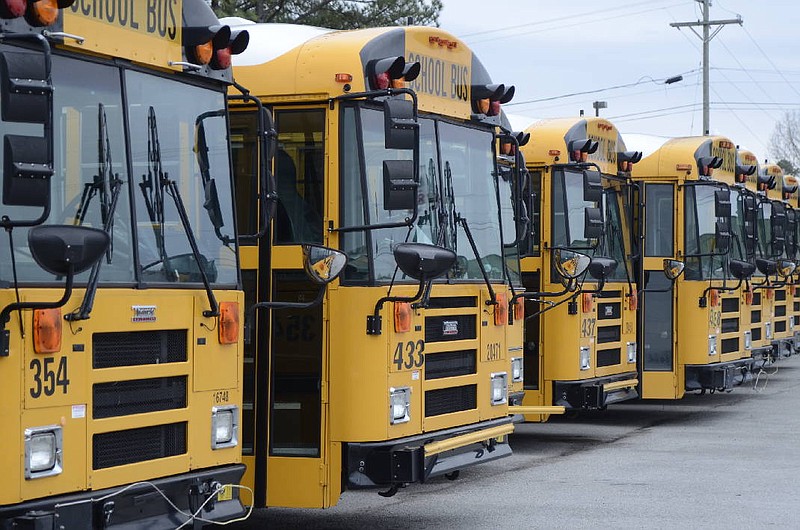HARTSELLE, Ala. (AP) - A north Alabama school system is allowing high school students to customize their education in a way that seemed impossible a decade ago.
The district, Hartselle City Schools, will expand those opportunities next year when it adds a law component to its system of academies, school officials said.
The academies are subject-specific disciplines that offer elective classes students can take to start their freshman year. The academies give students who may not plan to attend college an opportunity to earn certification in certain vocations. For those seeking higher education, it's an opportunity to earn college credit while gaining hands-on experience.
"Our reality and mandate from the state is we have to make sure every student graduates either ready for college or ready for a career," Superintendent Vic Wilson said.
The mandate is part of sweeping education requirements the state adopted in 2012 as part of Plan 2020.
Even before the state approved its plan, Hartselle was considering career academies that put students in real-life situations so they could decide which career paths to select.
Principal Jeff Hyche said the purpose of the academies is to get students to focus on exploring careers so they can find their niche instead of taking elective classes that may be meaningless to their future.
To accomplish this, Hartselle completely revamped its electives, and to date, has added seven career academies: agriculture, business and marketing, engineering, fine arts, information technology, medical and teaching.
Dee Dee Jones, director of teaching and learning for Hartselle City Schools, said students still are required to earn 24 credits - at least four each in English, math, science and social studies - to graduate.
But the academies give them an opportunity to earn no-cost college credits because of Hartselle's partnership with Calhoun Community College and Athens State University, she said.
Jones said at some point all of the more than 930 students will be in one of the academies. Two of the most popular are the medical and engineering academies. Jones said the district is adding a half unit next year to meet the demand for the medical academy.
Kim Pittman, a certified science teacher in the district for 10 years, also has a chemical engineering degree. Coming from a family of engineers, she proposed the engineering academy and now teaches it.
"Most don't have this opportunity in their family," she said.
Pittman said she would have benefited from hands-on engineering experience in high school.
Instead of a lecture format, she teaches most of her class in the lab.
"If we run into an issue, we handle it together," Pittman said.
Students Liam Bair, a junior, and Hailey Bright, a sophomore, said the class has confirmed their desire to become engineers.
Bright's father and two brothers are engineers.
"What I have learned in this class is that I want to follow them," she said.
Bair said he remembers considering engineering as a career as early as the second grade. He said there are no engineers in his family and he has thought about other careers.
"But getting this opportunity confirmed what I felt many years ago," he said.
Hartselle has been able to create the academies without adding a significant number of teachers. Hyche said he looked at skill sets in his existing faculty, and they have supported the program.
Pittman, for example, has a chemical engineering degree from Auburn University, and teacher Lynne Shelton, who runs the medical academy, has been a registered nurse for 25 years and works weekends at Huntsville Hospital.
Bucky Garner, who runs the information technology academy, has degrees in electrical and computer engineering from the University of Alabama in Huntsville, and worked in private business before becoming a teacher.
Last year, Hartselle added a job coach to the payroll. Hyche said the position helps freshmen after they have completed the state-mandated career prep course.
"When we know what our students want, we want to point them in the right direction," he said. "It's so important to provide counseling."
Most of the freshman courses are introductory, but as sophomores, students are getting a significant amount of hands-on experience.
In some cases, Hyche said, students have learned their desired career choice was not right for them. In the medical academy, for example, he said some students who wanted to be nurses and doctors realized they could not handle the sight of blood.
Jones said her daughter changed her career thoughts when she realized the amount of college time required to obtain a medical degree and because of her increased understanding of malpractice liability.
"What we're doing is common sense because we're trying to get students prepared for the next phase of life," Hyche said.
